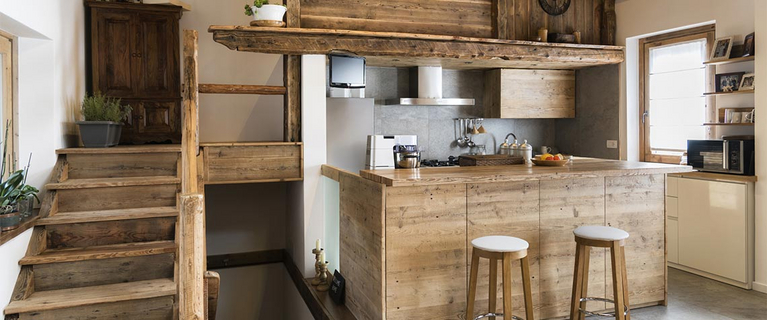Renovate holiday properties
What, how often and what does it cost?
To ensure that your holiday home or holiday flat is well booked in the future and remains competitive, you should renovate regularly and replace defective furnishings immediately. A well-maintained holiday property also ensures better occupancy and higher rental income. Meine Ferienimmobilie has summarised the most important points relating to the renovation of your holiday home for you.
Renovating holiday homes and the like - how often?
Due to the frequent change of tenants, holiday properties are usually subject to more wear and tear than "normal" properties. This is why shorter intervals apply for classic cosmetic repairs:
Painting:
- Kitchen, bathroom and shower better every two years instead of the usual three years
- Living room, bedroom and hallway every three years instead of five years
- Side rooms after four years at the latest instead of seven years
Defective electrical appliances, broken crockery, soiled mattresses etc.:
- You should always replace these immediately, especially during the letting season.
Garden maintenance, car park and co.
- Depending on how elaborate the grounds around your holiday property are, the more frequently the garden will need to be maintained.
- Mow the lawn about once a week, trim the hedges once or twice a year
Advantages of regular renovation:
- better utilisation
- higher rental prices
- Maintaining or increasing the value of your holiday property
- Avoidance of major renovation costs due to years of wear and tear
Deducting renovation costs from tax
Repairing doors, windows, fences and painting are regarded as maintaining the value of the property and can be immediately deducted from tax. All major renovation work, such as the subsequent installation of a fireplace, changes the overall value of your holiday home or holiday flat and is therefore added to the residual value of the building.
This allows you to subsequently write off a higher building value. Other renovation costs, on the other hand, can be written off as a lump sum over five years. Due to these different depreciation options, it is worth consulting a tax advisor, especially for larger sums.
